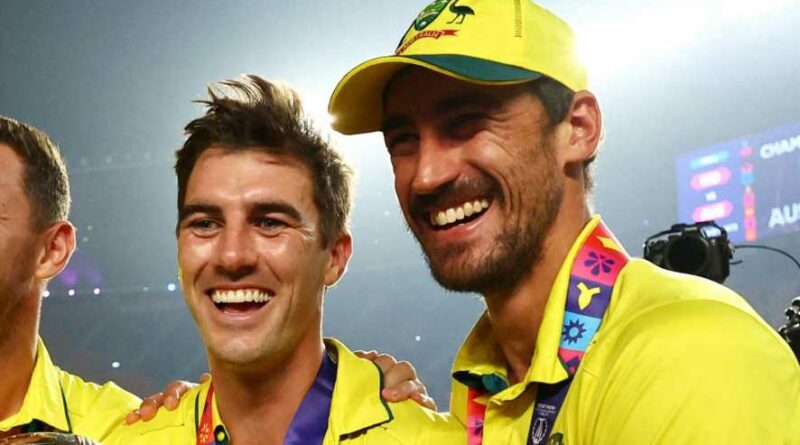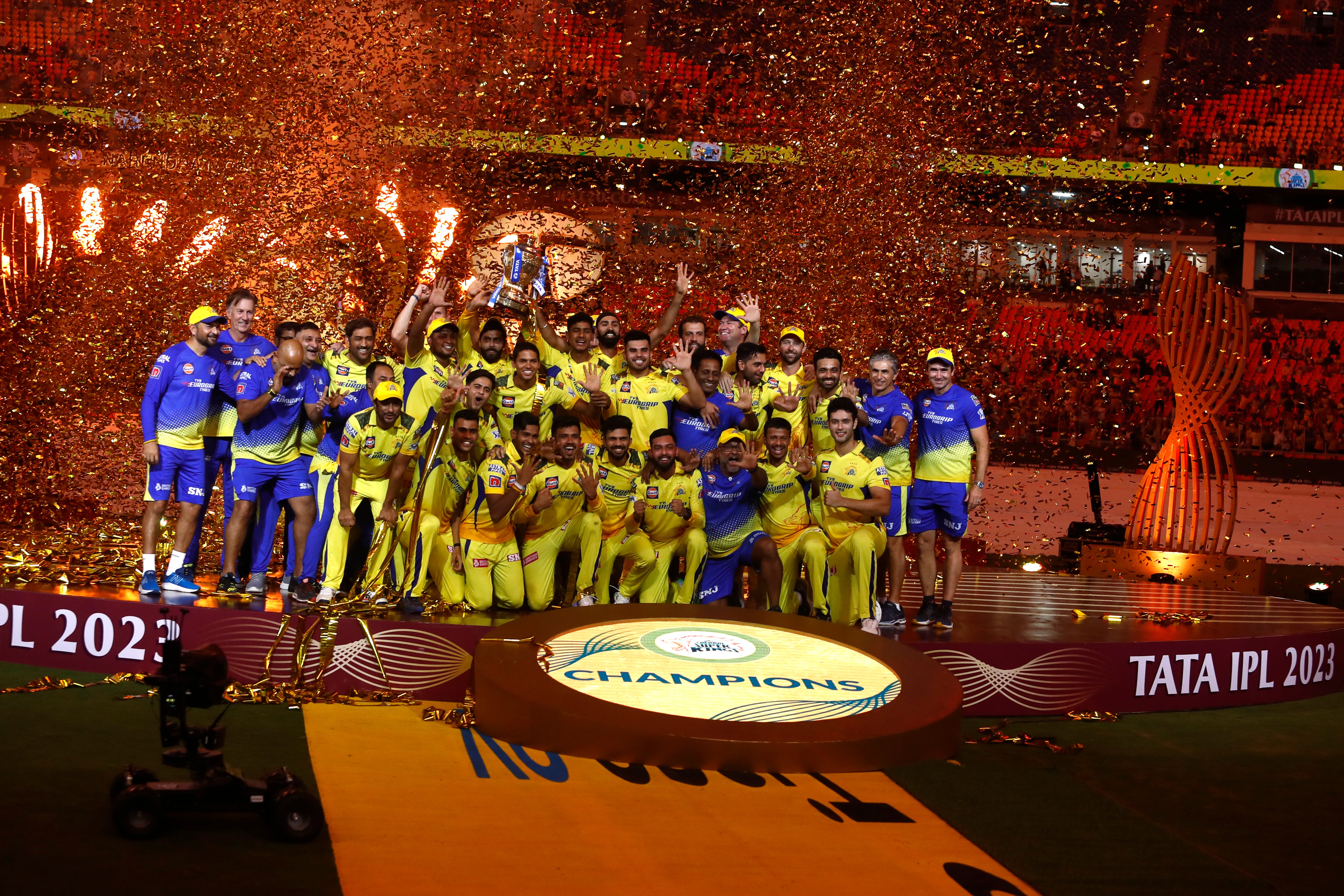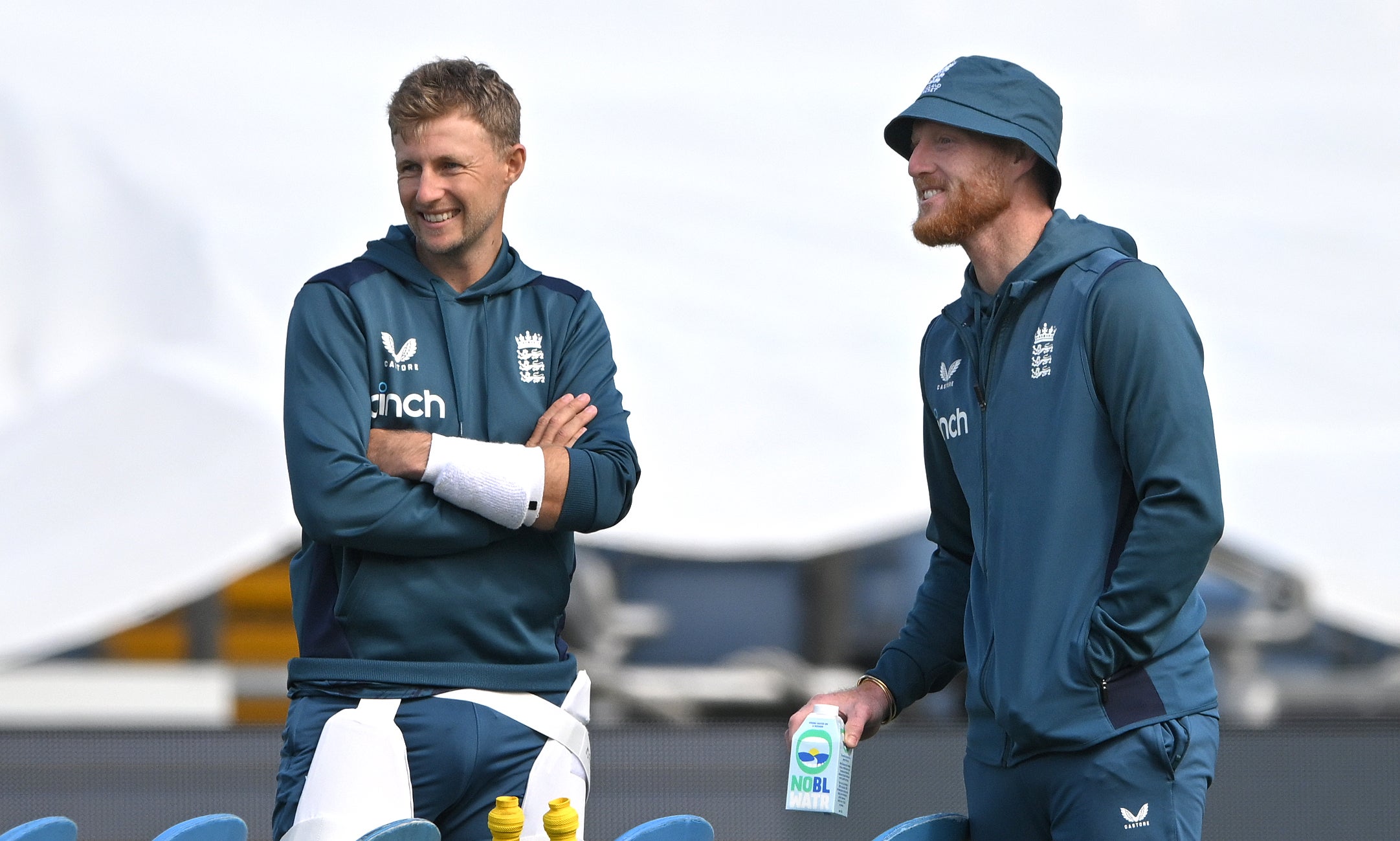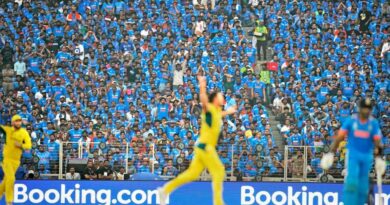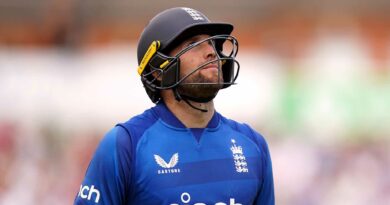IPL’s record spending spree leaves The Hundred with a problem
Sign up to our free sport newsletter for all the latest news on everything from cycling to boxing
Sign up to our free sport email for all the latest news
Thanks for signing up to the
Sport email
The Indian Premier League had already established itself as the most lucrative cricket league in the world. But when Pat Cummins became the world’s most expensive cricketer, only to be replaced by fellow Australian Mitchell Starc less than an hour later, it was clear just how far behind some of the other franchise leagues are.
Starc was signed for £2.3m by the Kolkata Knight Riders following an extensive bidding process, beating the £1.9m Sunrisers Hyderabad had signed Pat Cummins for in an earlier round.
The left-handed Starc had not played in the competition for eight years, but after an intense round of bidding, the fee was paid, and the premium on the two Australian fast bowlers set the tone for the rest of the auction. Fast bowlers were highly sought after, as were players who starred during the 2023 50-over Cricket World Cup, but some of the biggest names went unsold.
Before the ‘mini auction’ for the IPL 2024, Sam Curran held the title as the most expensive player, when £1.85m was paid for all-rounder in 2022. But the salary cap for a team, which at the first IPL back in 2008 was 20 crore (£1.9m), has increased to such an extent a single player has become more expensive, and it shows no signs of slowing down.
One thing was already certain before the latest draw, cricket at the top level is lucrative. But international cricket is a far cry away from the IPL. The top English players can be centrally contracted for a reported fee around £800,000 a year, but those chosen can eclipse those earnings in just two months of top-level franchise cricket.
The Chennai Super Kings won the IPL 2023
Harry Brook went to the Delhi Capitals for £380,000 and Chris Woakes to Punjab Kings for £400,000, even those sums, for a tournament where each side only plays matches between 23 March and 29 May.
The top bracket of the England and Wales Cricket Board’s own answer, The Hundred, offers players £125,000, well below the riches of the biggest tournaments in the world. It has already faced a battle to attract the top foreign stars, and the gulf between the contracts just keeps widening.
The IPL stands alone in terms of fortune, in fact it has been valued as the second-most valuable sporting league in the world, behind the NFL, beating even the Premier League.
The rest of the cricketing world can only watch and hope their country’s best players do not choose to do as some have already and turn their back on central contracts, in favour of the lucrative franchise deals.
England quick Gus Atkinson, who could make his Test debut in India in January, was signed by Kolkata for £94,000, while Royal Challengers Bangalore signed Tom Curran (£142,000) and David Willey who recently called time on his international career went to the Lucknow Super Giants for £189,000.
But Phil Salt, Josh Hazlewood and Steve Smith were among the high-profile names who were not signed by any of the 10 franchises.
England duo Ben Stokes and Joe Root opted out of the IPL 2024
Australia’s Spencer Johnson impressed during the Hundred, breaking tournament records on debut, and has been rewarded with a £944,000 contract at the Gujarat Titans, but the ECB’s flagship competition will want to establish itself as more than just a feeder for other T20 competitions.
The World Cup-winning players were in high demand during the auction, as were others who impressed in the tournament.
Rachin Ravindra went for £170,000, with his New Zealand teammate Daryl Mitchell becoming the third-most expensive player when he was picked up by the Chennai Super Kings for £1.3m.
Ben Stokes and Joe Root did not enter the auction to manage their workload, while the ECB decided to withdraw centrally contracted Jofra Archer from selection as he continues to recover from an ongoing elbow injury.
The IPL continues to grow and expand, but it could come at the cost of other tournaments, especially for those like the Hundred and the Big Bash League, which are run by the governing bodies, rather than private ownership.
Source: Read Full Article
